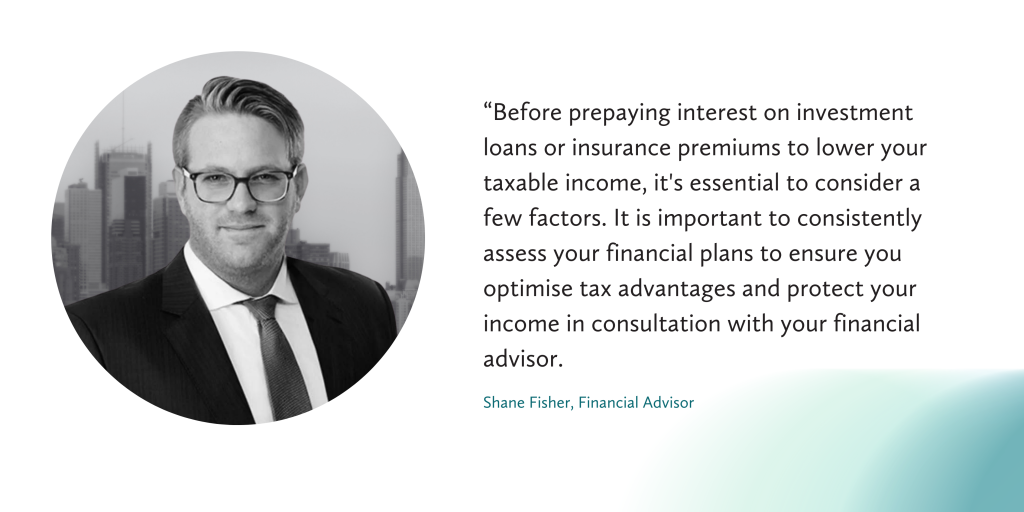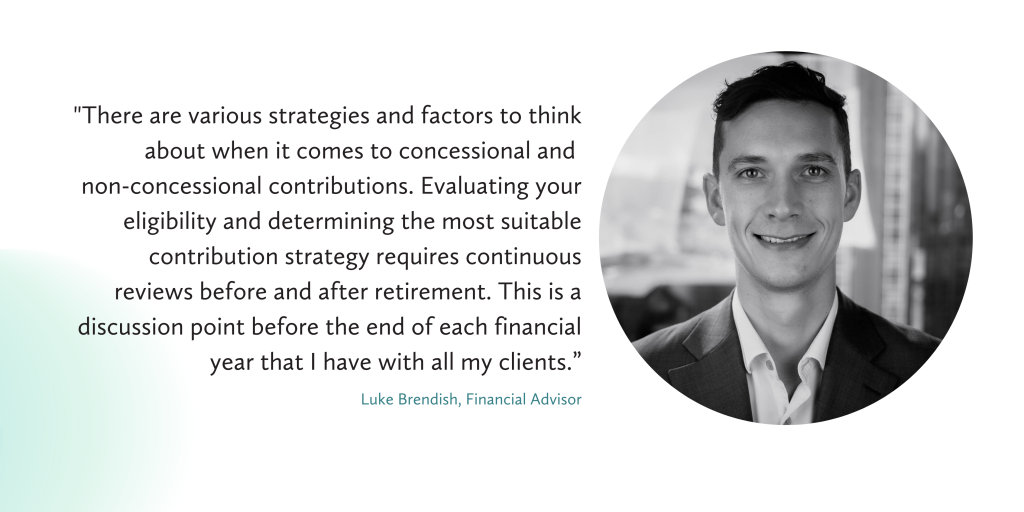
Strategic tax-saving insights to help make the most of the end of the financial year, focusing on long-term financial benefits.
With End of Financial Year fast approaching, it’s likely you are getting bombarded with “EOFY SALE” promotions. But while most promotions are trying to get you to empty your pockets before June 30, the decision to see a financial adviser is a type of self-promotion that could pay dividends for years to come. So invest in yourself and welcome the end financial year by partnering with a financial adviser to get the most out of your investments, superannuation and insurance.
So, what should you consider as we head towards June 30?
Take a Closer Look at Your Investments
An investment doesn’t just mean your share portfolio. This could also include your super or even your property portfolio. Regularly reviewing and rebalancing all of your investment assets is essential to adapt to market changes, assess risk management and monitor the overall portfolio performance. In doing so, you ensure that your portfolio is diversified and may potentially reduce any tax liabilities by utilising certain strategies that are applicable. Franking credits, for example, can provide tax offsets for dividends received. This can further reduce tax liabilities thereby enhancing your long-term financial objectives.
Pay your Income Protection Premiums in Advance
Income protection is a type of insurance policy designed to provide you with a regular income if you are unable to work due to illness, injury, or disability. It covers a percentage of your regular income, typically between 50% and 70%, helping to replace lost earnings. The premiums for this insurance are tax deductible. By paying your premiums in advance, you can claim a tax deduction for next year’s premiums in this financial year.
Pay Any Other Interest in Advance
Borrowing to invest can be a tax-effective means of wealth accumulation. It allows you as an investor to borrow for investment purposes and claim the interest on the borrowed funds as a tax deduction. This high-risk strategy is typically employed by experienced investors with a high-risk tolerance and a strong understanding of the markets. By leveraging borrowed funds, investors can purchase income-generating assets such as shares or property. By paying next year’s interest costs in advance, investors can claim a tax deduction for those costs in the current financial year.
Make a Non-Concessional Contribution to Super
A Non-Concessional Contribution (NCC) to super refers to contributions made from after-tax income. Since these contributions are made from your income after tax, they do not attract the 15% contributions tax that Concessional Contributions (pre-tax contributions like employer contributions and salary sacrifice) do.
Currently, the government offers a scheme for individuals earning less than $43,445 per annum. By making a non-concessional contribution to your super, you may be eligible for a government contribution.
Under this scheme, the government will contribute up to $0.50 for each $1.00 you contribute, up to $500. This entitlement decreases for every dollar earned up to an annual income of $58,445.
Make a Concessional Contribution to Super
A Concessional Contribution to super refers to contributions made from pre-tax income, meaning they reduce your taxable income. These include employer contributions (also called Superannuation Guarantee or SG), salary sacrifice contributions, and personal contributions. These contributions are taxed at a concessional (lower) rate of 15% when they enter the super fund, which is generally lower than the marginal tax rates.
Most individuals can claim a tax deduction for contributions up to the current limit of $27,500 per annum, including any Superannuation Guarantee Contributions from an employer. If your total superannuation balance was less than $500,000 as of June 30 last year, you might be entitled to make additional concessional contributions for any unused amounts.
Final Thoughts
Amidst all the sale frenzy that’s coming into your mailbox, taking a moment to assess your financial standing will prepare you for what’s to come and help you achieve your wealth accumulation and protection goals.
To make the most of these opportunities, book a time with an adviser to discuss and implement the best strategies for your situation, and sign up for our newsletter below to stay informed about the latest financial tips and updates.










